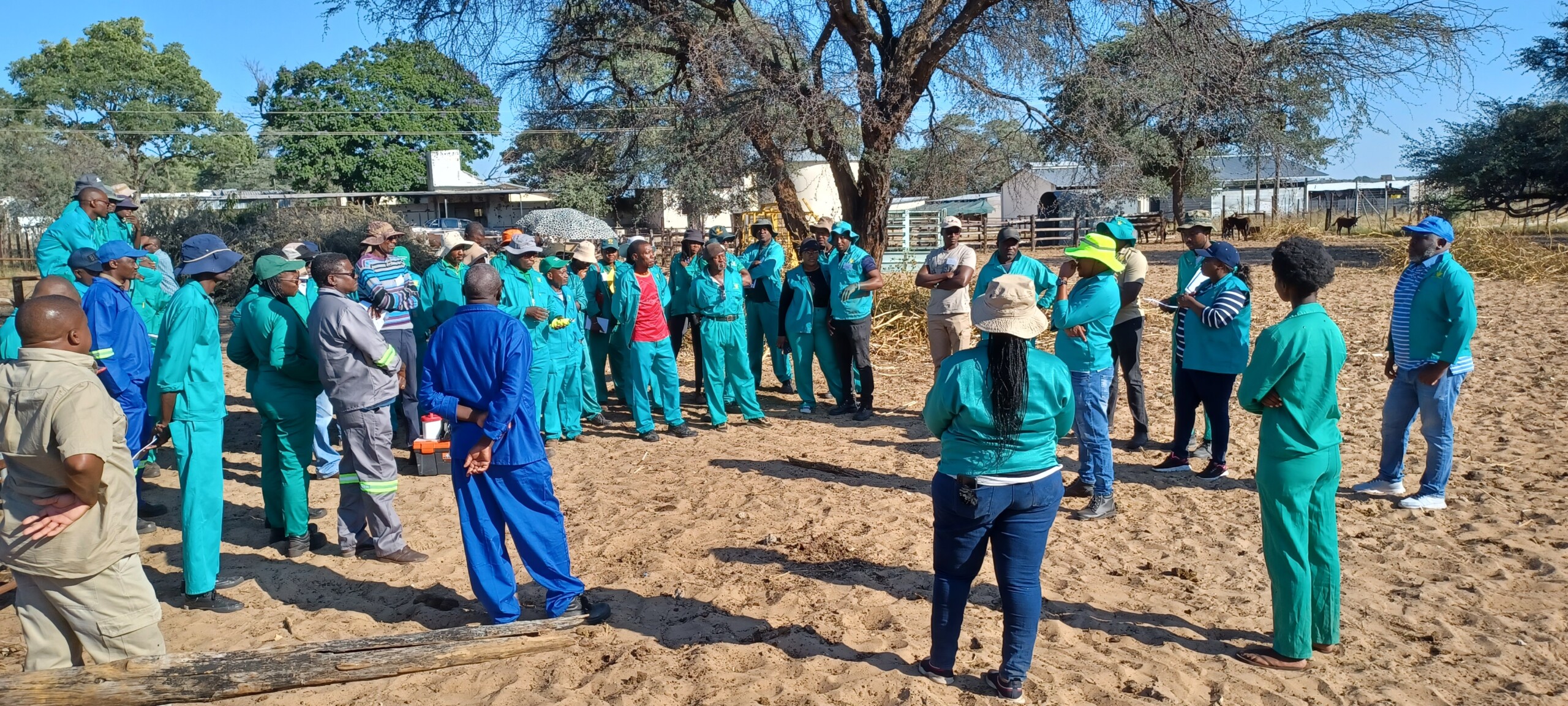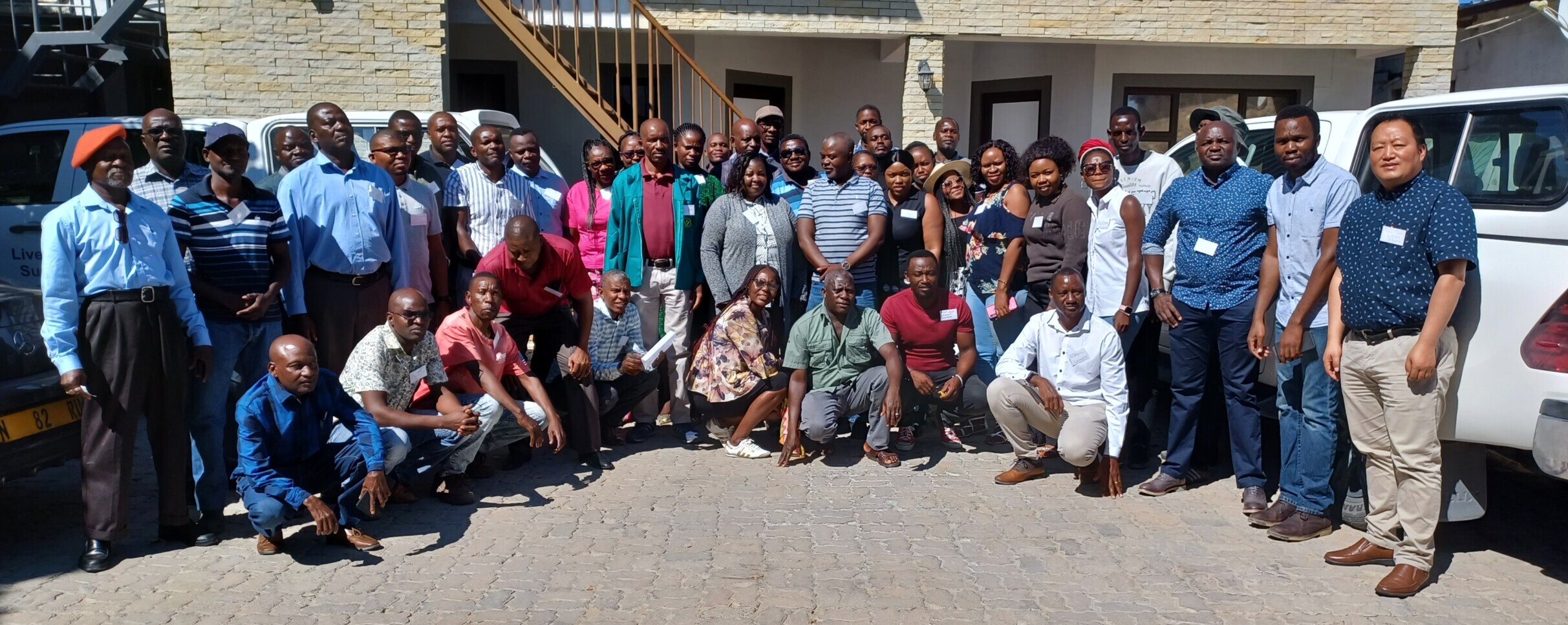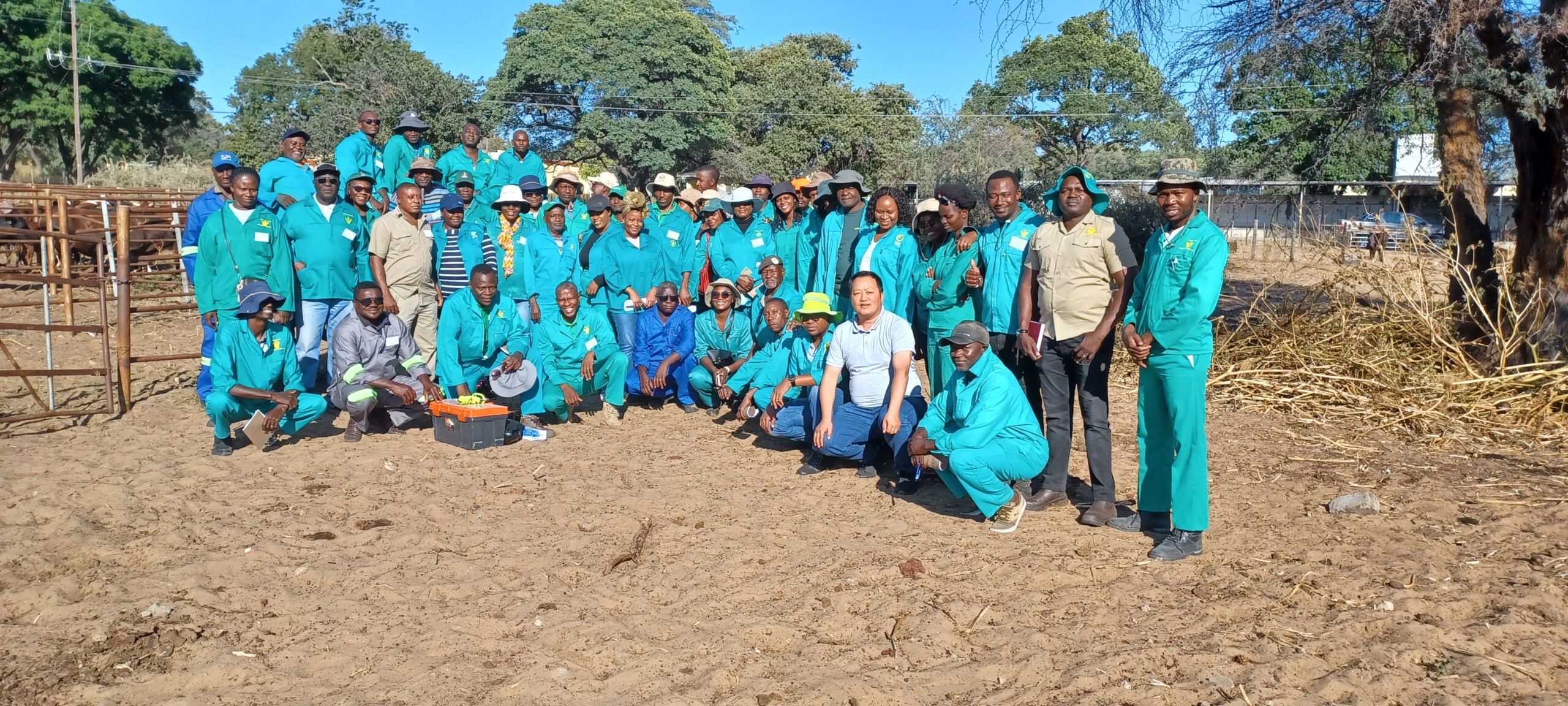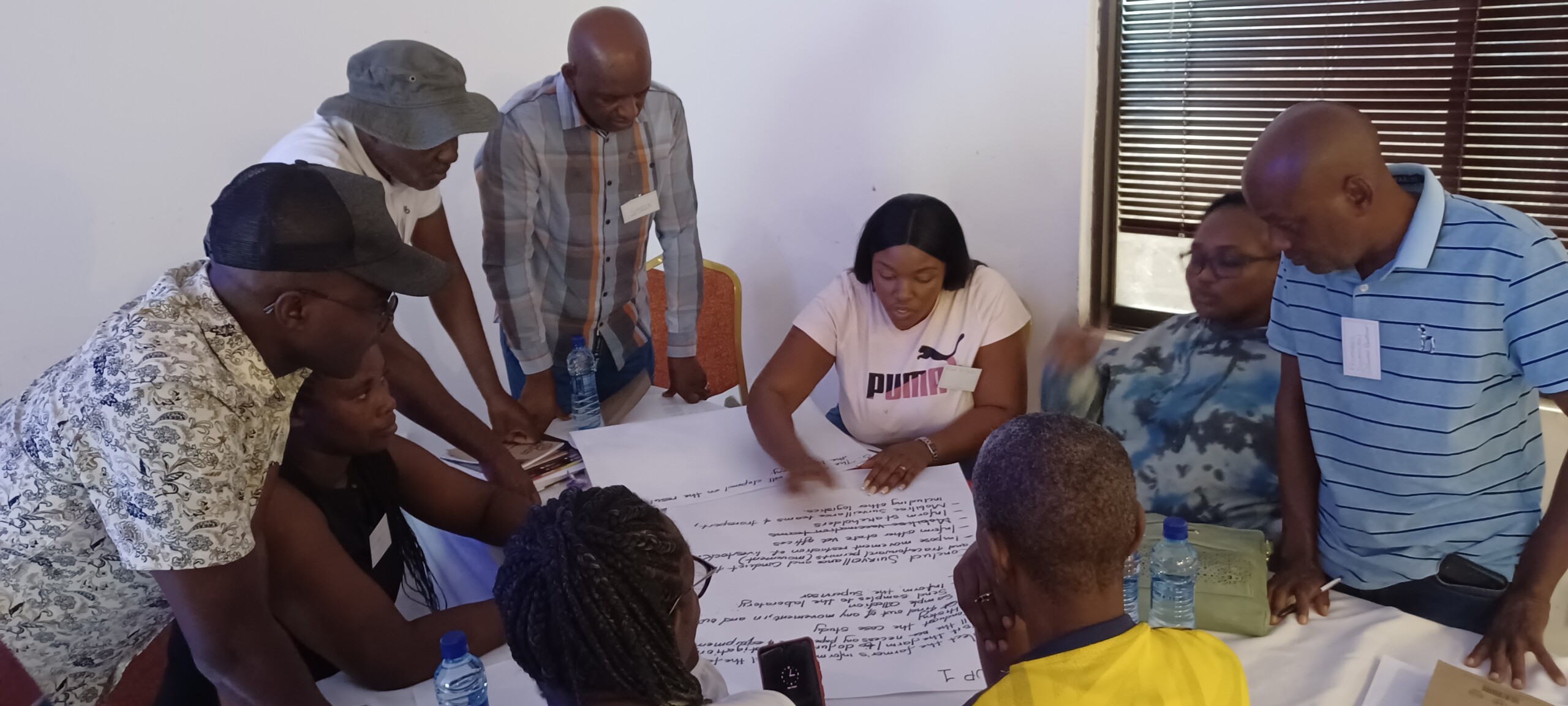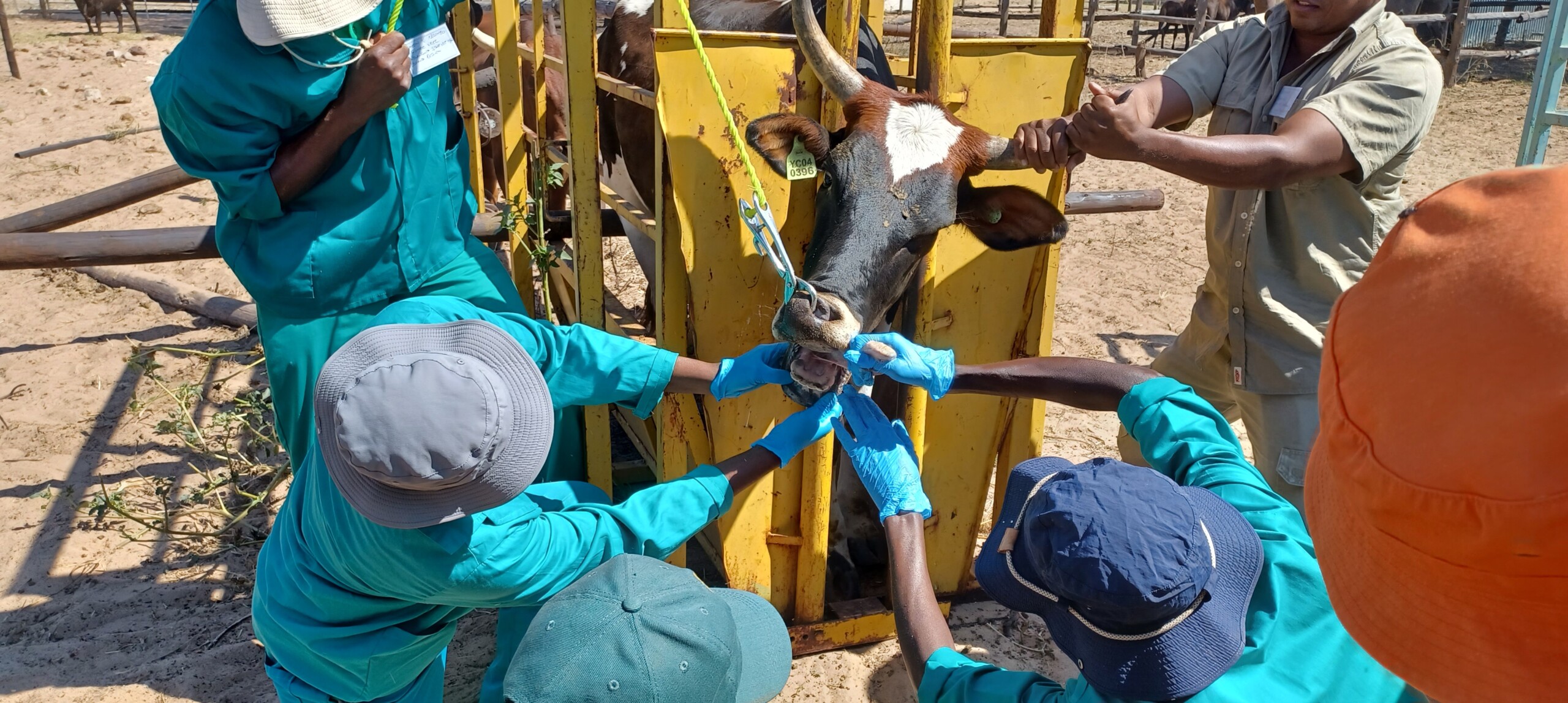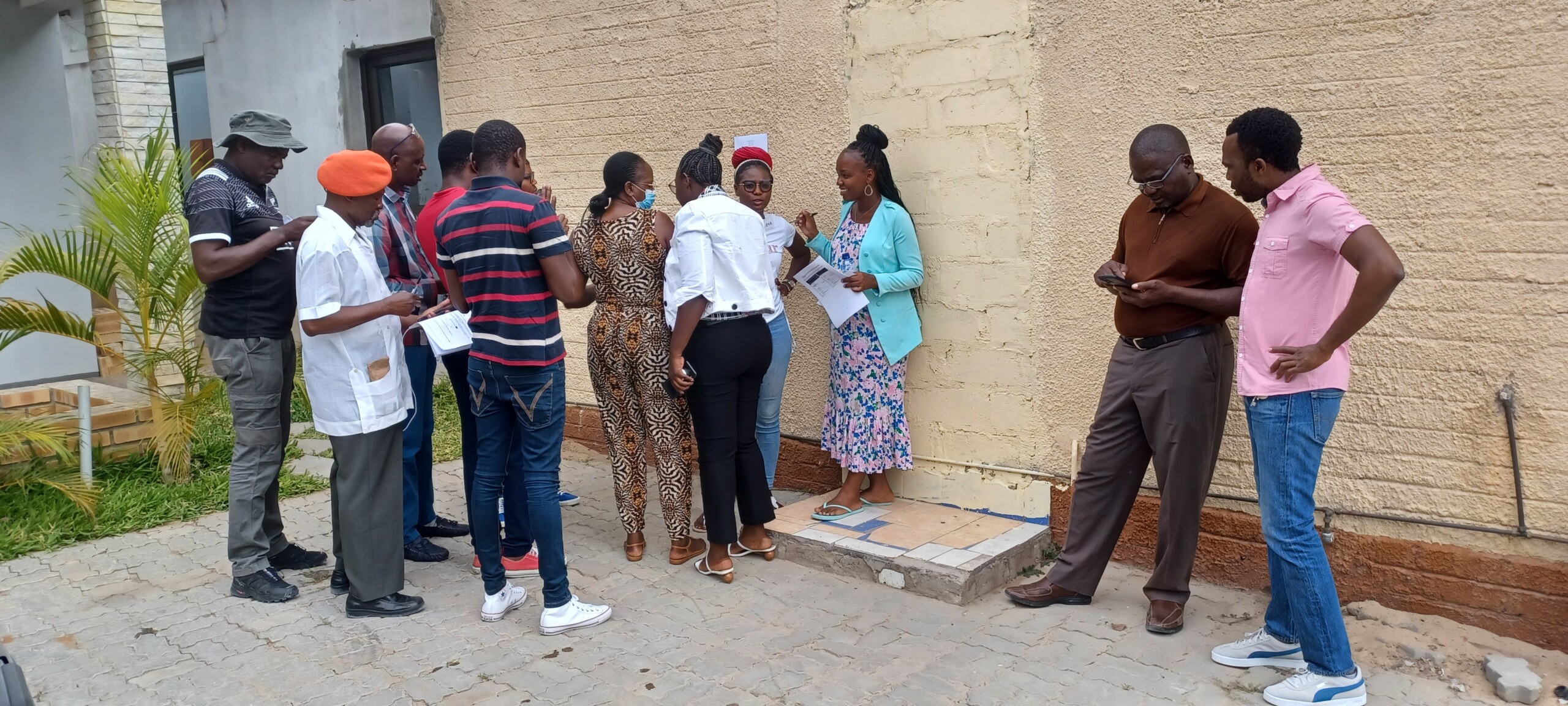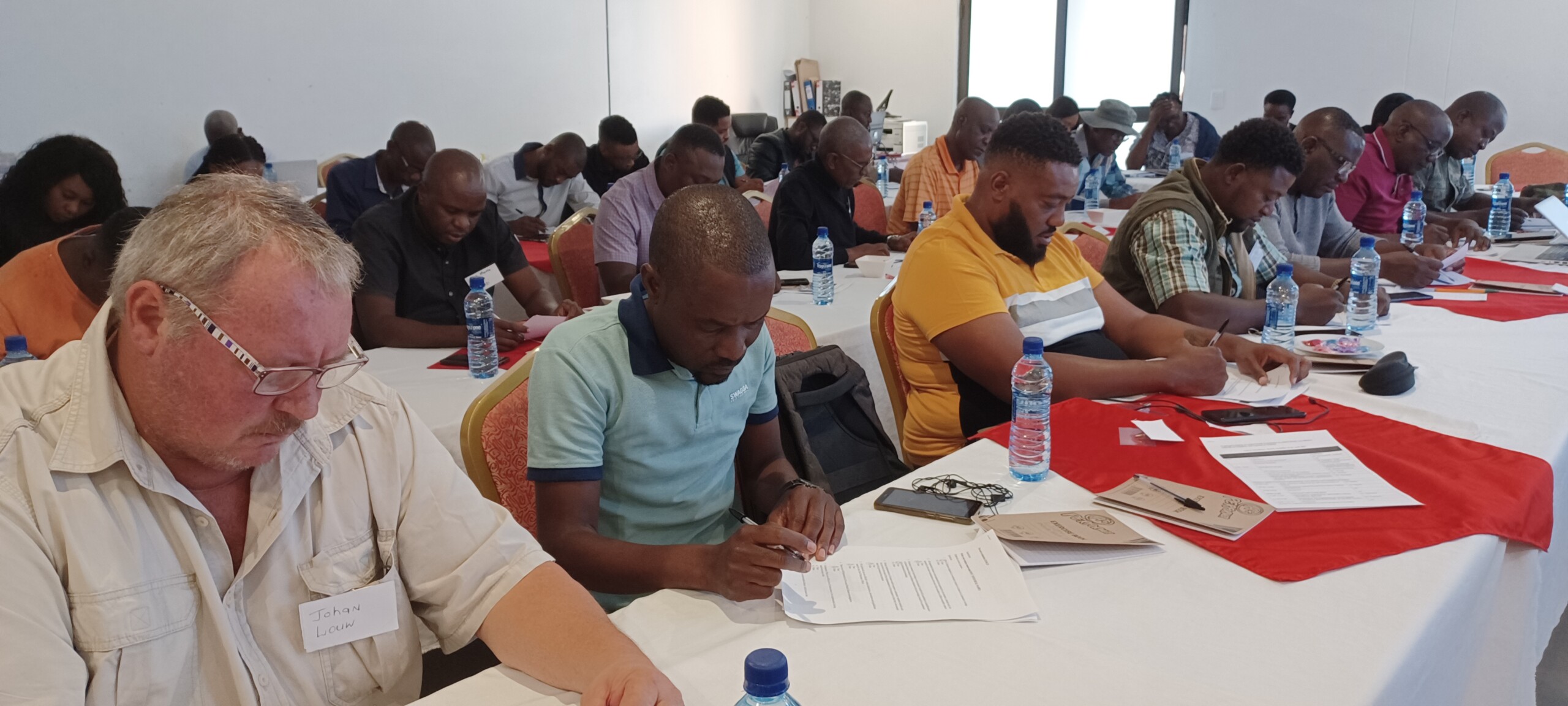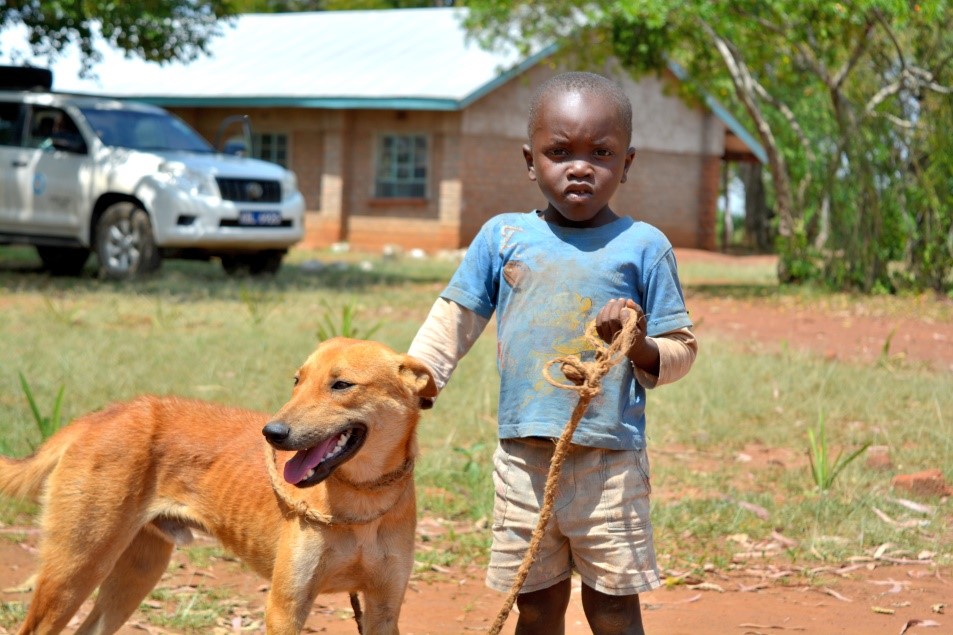
A training workshop on animal disease surveillance, disease outbreak investigation and response, and the rabies elimination programme was organised in Rundu, Namibia from 18-28 April 2023.
The training workshop was attended by 92 veterinary para-professionals (Animal Health Technicians) in two batches : from the Surveillance Area and from the Northern Communal Area (NCA) of Namibia. The training was co-organised by the Directorate of Veterinary Services (DVS) of Namibia and WOAH and was funded by the BMZ OHRT Project (Germany). The training aimed to build the capacity of DVS animal health staffs on the surveillance of transboundary animal diseases, conduct outbreak investigation and response and implement a One Health approach towards elimination of dog-mediated rabies in the NCA of Namibia.
Les participants-étudiants, à la ferme bovine pour s'entraîner à prélever des échantillons sur les animaux. Photo © T. Tenzin (woah) 2023
Trainees at a cattle farm to practice taking samples from animals. Picture © T. Tenzin (woah) 2023
During the four days’ training programme, the participants were empowered on the following broad topics, both in theory and in practical terms.
Exercice de groupe sur l'investigation et la réponse aux épidémies. Photo © Tenzin Tenzin (woah) 2023
Group exercise on epidemic investigation and response. Picture © Tenzin Tenzin (woah) 2023
The participants were taught the various steps of disease outbreak investigation, followed by scenario-based group work on how to conduct detailed outbreak investigation in the field, reporting, communication and outbreak response. This was followed by group plenary presentation and discussion.
Immobilisation des animaux et examen de la bouche des bovins pour détecter d'éventuelles lésions buccales suspectes de fièvre aphteuse. Photo © Tenzin Tenzin (woah) 2023
The participants were taken to a nearby Government farm at Mashare Training Center, where they were taught on how to conduct proper history taking, clinical examination of animals, restraining animals, visual inspection of animals for any lesions/clinical signs for diseases such as foot-and-mouth disease (FMD) in cattle and Orf (virus) in goats, conducting mouthing of animal to find out any lesions in the mouth/tongue suspecting FMD, blood sampling, labelling, storage, packaging and submission of samples to the laboratory. This practical exercise provided an opportunity for the animal health technicians to learn new things and also refresh their knowledge and skills on animal handing, examination and sampling.
Restraining of animals and examining the mouths of cattle for oral lesions indicative of foot and mouth disease. Picture © Tenzin Tenzin (woah) 2023
Exercice pratique sur la collecte de données relatives à la vaccination de masse des chiens à l'aide d'une application mobile. Photo © Tenzin Tenzin (woah) 2023
Various topics including rabies as a disease, the global strategic plan for the elimination of dog mediated rabies by 2030, planning of dog vaccination campaigns, dog vaccination data management using mobile applications, community engagement, rabies surveillance and KAP survey findings were covered during the training programme. The participants were taught how to capture dog vaccination data and track the vaccination campaign using a mobile app.
Practical exercise : collecting data on mass dog vaccination using a mobile application. Picture © Tenzin Tenzin (woah) 2023
Évaluation de la formation. Photo © Tenzin Tenzin (woah) 2023
Training evaluation. Picture © Tenzin Tenzin (woah) 2023
A pre-training and post-training questionnaire-based examination was conducted, and the assessment demonstrated increased knowledge and understanding of the subjects following the training programme. The participants also mentioned that it was a well-coordinated training programme and that they never attended such training events in the past. All field issues related to service delivery to the communities and opportunities for improvement were discussed during the four-day training. This event also provided an opportunity to meet field colleagues from different areas and regions of Namibia and share their field experience and establish networks.
